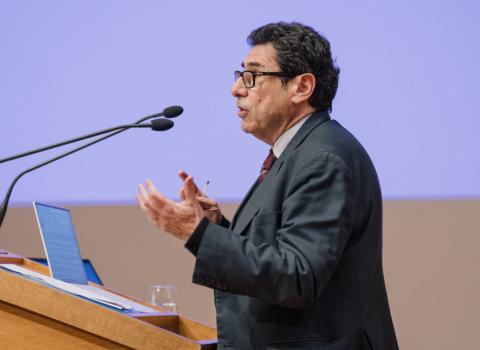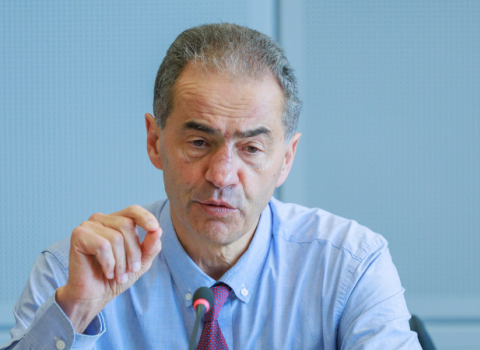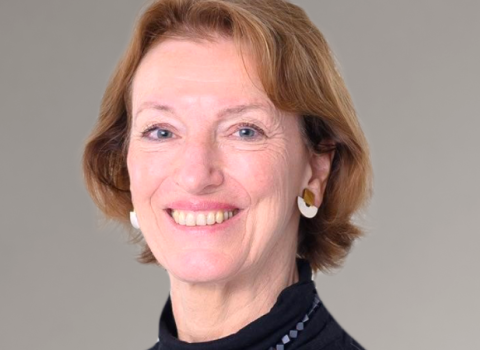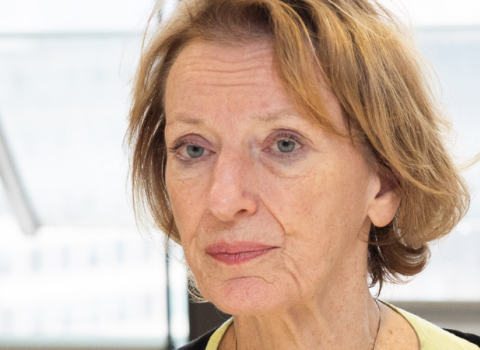National funding scheme will help researchers in Swiss institutions carry on with European Research Council and Marie Skłodowska-Curie projects, as they wait for Bern and Brussels to thrash out an agreement on Horizon Europe participation

Switzerland has unveiled details of a funding scheme through which Horizon Europe applicants will still be able to carry on with their projects, despite the country’s uncertain status in the EU research programme.
The Swiss Federal Council instructed the State Secretariat for Education, Research and Innovation (SERI) to introduce transitional measures for funding international research projects, which will be submitted to parliament with a notification to amend the 2022 budget.
Back in June, the European Commission excluded Switzerland from Horizon Europe. Swiss researchers were barred from applying for individual grants in future calls from the European Research Council (ERC) Marie Skłodowska-Curie Actions (MCSA) and the European Innovation Council (EIC).
As things stand, researchers in Switzerland can no longer submit proposals to the ERC advanced grants scheme or MSCA postdoctoral fellowships. SERI and the Swiss National Science Foundation (SNSF) scheme will bridge the funding gap.
Swiss institutions can access about two thirds of Horizon calls, but the funding will come from SERI. With funding guaranteed by the government, Swiss partners are eligible to take part in the vast majority of Horizon calls for collaborative projects.
However, researchers in Switzerland cannot apply for individual ERC grants, MSCA postdoctoral fellowships, MSCA’s Cofund scheme, which provides funding for regional, national and international programmes for training and career development, or for the EIC Accelerator, which backs start-ups and small companies to develop and scale up new products. These cannot be funded by SERI because submissions are not evaluated by the Commission.
Proposals submitted from Switzerland before the June ban to calls for ERC starting and consolidator grants are being evaluated by the Commission and will be funded by SERI if successful. Researchers with an ERC grant in 2021 who are moving to Switzerland to do the work will also get funding from the SNSF to continue their projects.
The Swiss government is sticking to the line that it aims to join Horizon Europe as soon as possible and the measures announced are temporary. However, university representatives fear the research impasse with the EU could last for at least two years.
If association to Horizon Europe is delayed for this length of time, SNSF will be mandated to come up with replacement calls in 2022, under the new Swiss funding instrument.
The Swiss government will also introduce additional measures together with the national innovation agency Innosuisse, the European Space Agency (ESA) and other research agencies.
The planned transitional measures will be submitted to parliament in the winter session, in the form of an addendum to the 2022 budget. Implementation is subject to parliamentary approval.
In the meantime, SERI is drafting financial guidelines for participants based in Switzerland. The rules will impose maximum salary rates for companies, including SMEs, non-commercial research centres and institutions outside the university sector. Funding can only be provided for costs that are incurred in Switzerland. SERI also reserves the right to impose funding cuts if Swiss participants incur costs it considers to be unreasonably high.





 A unique international forum for public research organisations and companies to connect their external engagement with strategic interests around their R&D system.
A unique international forum for public research organisations and companies to connect their external engagement with strategic interests around their R&D system.